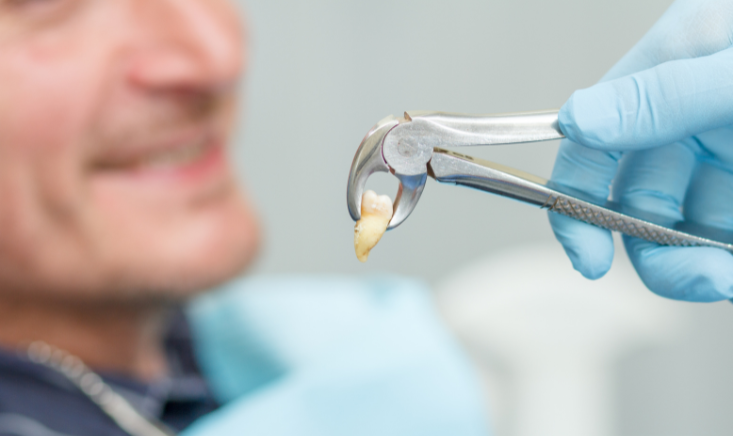We are not a registered Medicare/Medicaid Provider
Foods to Eat and Avoid After Wisdom Teeth Removal: A Comprehensive Guide
Union, NJ
Having your wisdom teeth removed can be a daunting experience. The post-surgery period is crucial for recovery, and diet plays a significant role in ensuring a smooth healing process. Eating the right foods can help minimize pain, reduce the risk of infection, and accelerate recovery. Conversely, consuming the wrong foods can lead to complications such as dry sockets or infections. This blog post will guide you through the foods to eat and avoid after wisdom teeth removal, providing you with practical tips for a speedy recovery.
Why Diet Matters After Wisdom Teeth Removal
After wisdom teeth extraction, your mouth will be sensitive, and the surgical site will be prone to infection and irritation. Eating the wrong foods can disrupt the healing process, leading to pain, swelling, and complications. A proper diet helps in:
- Reducing Pain and Swelling: Soft, cool foods can soothe the surgical area.
- Preventing Infection: Avoiding certain foods can reduce the risk of infection.
- Promoting Healing: Nutritious foods provide essential vitamins and minerals that aid in tissue repair.
Foods to Eat After Wisdom Teeth Removal
1. Smoothies and Shakes
Why They’re Good: Smoothies and shakes are nutrient-dense and easy to consume without chewing. They can be packed with fruits, vegetables, and protein powders to ensure you’re getting enough nutrients.
Tips: Avoid using straws as the suction can dislodge the blood clot and lead to dry sockets. Use a spoon instead.
2. Greek Yogurt
Why It’s Good: Greek yogurt is high in protein and probiotics, which can aid in digestion and provide the body with essential nutrients for recovery.
Tips: Choose plain or lightly sweetened varieties to avoid added sugars that can irritate the surgical site.
3. Mashed Potatoes
Why They’re Good: Mashed potatoes are soft and easy to eat. They can be made more nutritious by adding a bit of butter or olive oil for healthy fats.
Tips: Ensure the potatoes are well-mashed and free of lumps to prevent irritation.
4. Soups and Broths
Why They’re Good: Soups and broths are hydrating and can be loaded with vegetables and proteins. They provide necessary nutrients without requiring much chewing.
Tips: Let the soup cool before eating to avoid irritating the surgical site with hot temperatures. Opt for smooth soups without large chunks.
5. Applesauce
Why It’s Good: Applesauce is soft and easy to eat, providing some fiber and vitamin C, which are beneficial for recovery.
Tips: Choose unsweetened applesauce to avoid added sugars.
6. Scrambled Eggs
Why They’re Good: Scrambled eggs are soft, easy to chew, and high in protein, which is crucial for tissue repair.
Tips: Avoid adding too many spices or hot sauce that could irritate your mouth.
7. Avocado
Why It’s Good: Avocado is soft and rich in healthy fats, vitamins, and minerals. It can be eaten alone or added to smoothies for extra creaminess.
Tips: Ensure the avocado is ripe and soft for easier consumption.
8. Cottage Cheese
Why It’s Good: Cottage cheese is high in protein and soft enough to eat without causing irritation.
Tips: Pair it with soft fruits like peaches or pears for added flavor and nutrition.
9. Ice Cream and Pudding
Why They’re Good: These treats are cool and soothing, which can help reduce swelling and discomfort. They also provide some calories and energy.
Tips: Opt for less sugary options and avoid ice cream with hard chunks or nuts.
10. Oatmeal
Why It’s Good: Oatmeal is a soft and easy-to-eat food that can be fortified with various nutrients by adding fruits and nuts (once you’re ready for slightly more textured foods).
Tips: Ensure the oatmeal is not too hot and is well-cooked to a soft consistency.
Foods to Avoid After Wisdom Teeth Removal
1. Crunchy Foods
Why to Avoid: Foods like chips, nuts, and popcorn can irritate the surgical site and get stuck in the wound, leading to infection.
2. Spicy Foods
Why to Avoid: Spicy foods can cause irritation and increase discomfort in the sensitive surgical area.
3. Sticky Foods
Why to Avoid: Foods like caramel, chewing gum, and sticky candies can get lodged in the surgical site and are difficult to clean out.
4. Hard Foods
Why to Avoid: Hard foods like raw vegetables, tough meats, and hard candies can disrupt the healing process by causing physical damage to the surgical site.
5. Hot Foods and Drinks
Why to Avoid: Hot foods and drinks can cause increased swelling and discomfort. They may also dislodge the blood clot, leading to dry sockets.
6. Alcoholic Beverages
Why to Avoid: Alcohol can interfere with the healing process and interact negatively with pain medications. It can also dehydrate you, which is counterproductive to recovery.
7. Caffeinated Drinks
Why to Avoid: Caffeine can dehydrate you and increase blood pressure, which is not ideal for recovery.
8. Seeds and Grains
Why to Avoid: Small seeds and grains can get lodged in the surgical site, leading to irritation and infection.
9. Carbonated Drinks
Why to Avoid: The bubbles in carbonated drinks can irritate the surgical site and cause discomfort.
10. Citrus Foods and Juices
Why to Avoid: Citrus fruits and juices are highly acidic and can cause irritation and stinging in the surgical area.
Tips for a Smooth Recovery
1. Stay Hydrated
Drinking plenty of water is crucial for recovery. It helps keep the mouth clean and supports overall healing. Avoid using straws to prevent dislodging the blood clot.
2. Maintain Oral Hygiene
Gently rinse your mouth with warm salt water starting 24 hours after surgery. Avoid vigorous rinsing or spitting to protect the blood clot.
3. Follow Your Dentist’s Instructions
Adhere to the specific guidelines provided by your dentist or oral surgeon regarding medication, diet, and activity restrictions.
4. Rest and Recover
Allow your body time to heal by getting plenty of rest and avoiding strenuous activities for a few days post-surgery.
5. Monitor Your Symptoms
Keep an eye on your symptoms. If you experience excessive bleeding, severe pain, or signs of infection, contact your dentist immediately.
Navigating the post-surgery period after wisdom teeth removal can be challenging, but with the right dietary choices, you can ensure a smoother and quicker recovery. Prioritize soft, nutrient-dense foods and avoid those that can cause irritation or complications. Remember to stay hydrated, maintain oral hygiene, and follow your dentist’s instructions closely. By doing so, you’ll be back to your normal routine in no time.
FAQs
1. Can I eat rice after wisdom teeth removal?
It’s best to avoid rice immediately after surgery as it can get stuck in the surgical site and cause irritation or infection.
2. When can I start eating solid foods?
You can typically start incorporating more solid foods into your diet a week after surgery, depending on your recovery progress. Always follow your dentist’s advice.
3. Is it okay to drink coffee after wisdom teeth removal?
It’s advisable to avoid caffeinated beverages like coffee for the first few days post-surgery as they can increase blood pressure and cause dehydration.
4. Can I eat ice cream after wisdom teeth removal?
Yes, ice cream can be soothing due to its cool temperature. Opt for less sugary varieties and avoid those with hard chunks or nuts.
5. How long should I avoid using straws?
Avoid using straws for at least a week after surgery to prevent dislodging the blood clot and causing a dry socket.
New Patients & Emergency Appointments Welcome!


